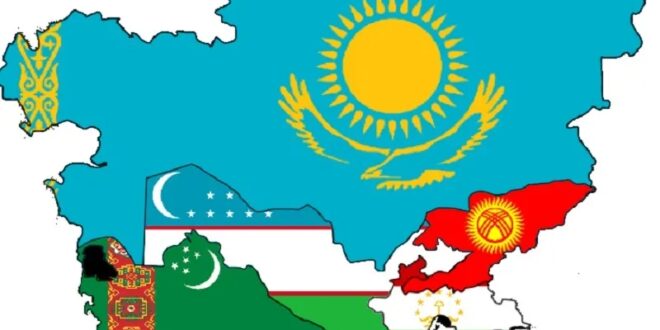This arrangement is economically beneficial but exposes Russia to security risks.
The fact that Friday night’s terrorist attack at the Crocus City Hall venue in Moscow was committed by Tajik migrants has made some wonder whether it’s time for Russia to close its open border policy with Central Asia. Citizens of these countries can enter Russia without a visa for 90 days, where many of them then find employment in manual and/or low-skilled labor to satisfy their host country’s market needs. In return, their remittances keep their struggling countries afloat, thus averting their slide into failed states.
This arrangement is economically beneficial but exposes Russia to security risks. The most obvious one is that terrorist can easily exploit this open border policy to enter the country with minimal scrutiny, while a related risk is that they can radicalize destitute migrants that are already there. Less obviously, those migrants that refuse to follow President Putin’s advice to integrate and assimilate contribute to ethnic tensions, thus threatening national unity.
The Russian leader published a detailed immigration manifesto in 2012 during his campaign to return to the presidency from the premiership that can be read in English here where he explains the importance of newcomers respecting their hosts by peacefully incorporating themselves into its society. Patriarch Kirill warned in November that “the whole Russian world is under threat” due to the failure of this policy, however, which he said one month later “threaten(s) interreligious and interethnic peace and harmony.”
He added that “The desire to obtain cheap labor for the sake of mainly short-term economic benefits should not attract to our motherland a huge number of people belonging to a different culture, who often do not speak Russian and have no respect for Russia and the peoples who live here.” He was careful with his words since Article 282 of the Russian Criminal Code prohibits the instigation of ethno-religious hatred, but some of his compatriots convey these same points crudely and thus violate the law.
The aforementioned article is integral to maintaining Russia’s existence as a multinational country since the uncontrolled proliferation of hate speech risks catalyzing countless identity conflicts. Nevertheless, the overabundance of caution that many take when discussing migrant-related matters out of fear that their words might accidentally violate the law explains why the security dimension of this subject hasn’t been widely discussed, though Patriarch Kirill’s intervention and the Crocus attack might change that.
To be absolutely clear, Tajiks are mostly hard-working, peaceful, and secular, but they also have some bad apples within their society too just like all do. That said, three factors set Tajikistan’s riffraff apart from all other countries’ that have visa-free travel to Russia: the lingering legacy of the Islamist-inspired civil war from the 1990s; geographic proximity to Afghanistan within which ISIS-K operates; and the presence of more Tajiks in Afghanistan than in Tajikistan itself.
In the order that they were shared, these lead to: a sizeable segment of the population being predisposed to religious radicalism; the aforesaid having the opportunity to easily obtain training in preparation of future attacks; and radicalized members of the Afghan diaspora being able to leverage ethno-linguistic connections to influence their eponymous nation-state’s counterparts. These risks aren’t theoretical but have already taken tangible form according to the Taliban’s acting Defense Minister.
He revealed late last year that “After the Islamic Emirate came into power, the attacks on mosques, monasteries, religious scholars and public gatherings were all carried out by foreigners, especially the citizens of Tajikistan. Dozens of Tajikistan citizens have been killed in our operations and dozens of others have been arrested…Now in some of the neighboring countries there are centers of production, smuggling and sale of weapons”.
That being the case, retaining Russia’s open border policy with Tajikistan exposes it to an unprecedentedly high security risk nowadays, though it can’t be closed without doing the same for the other Central Asian Republics that have the same visa-free travel rights or it’ll be destabilizing. The reason is that cutting only Tajikistan out of this arrangement could cause widespread resentment that terrorists can exploit to radicalize more Tajiks and mislead them into carrying out more terrorist attacks.
At the same time, the mutually beneficial economic logic that’s responsible for this policy in the first place remains, thus meaning that there’d be costs to both parties if Russia abandons it. Some middle ground should therefore be reached whereby they can each still reap economic benefits, albeit perhaps at a comparatively lesser level than at present, but with more security measures in place to prevent terrorists from exploiting these citizens’ visa-free travel privileges to Russia.
In any case, there’s never been a better time than now for responsible members of Russian society to initiate a long-overdue and very candid conversation on this subject, especially after Patriarch Kirill’s intervention and the Crocus attack. Those who participate in it must always keep Article 282 in mind, however, in order to avoid inadvertently catalyzing countless identity conflicts in this historically cosmopolitan country that would facilitate the West’s divide-and-rule Hybrid War plots.
 Eurasia Press & News
Eurasia Press & News




